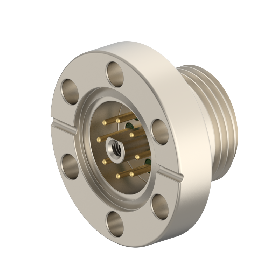Like other solid materials, glass expands when heated. Because the physical properties of glass will change rapidly and continuously in the temperature range of the "softening zone", the curve of the linear expansion coefficient of general glass and the temperature T has a bend. The thermal expansion of general metal materials is normal thermal expansion, and the relationship between the linear expansion coefficient and the temperature T is approximately a straight line. This kind of thermal expansion curve with bending phenomenon is a characteristic of glass materials. In order to match the melting and sealing of glass and metal, the thermal expansion curves of the two are required to be as consistent as possible. Expansion alloys (such as Kovar, etc.) are special alloys developed by using the magnetostrictive phenomenon of ferromagnetic materials. The thermal expansion curve of the alloy is bent due to abnormal expansion to achieve the purpose of matching and sealing with glass. The linear expansion coefficient of glass mainly depends on its composition. Generally, adding CaO, BaO, Na2O, K2O and other ingredients will increase the linear expansion coefficient, while increasing SiO2, B2O3, Al2O3, etc. can reduce its linear expansion coefficient.
(huiputech)

Z-S-CF16-0810S,Z-S-CF16-0810M,Z-S-CF16-0810L
2025-11-04
Contact : Martin
Tel : +86 18588203671
Mobile : +86 18588203671
Fax : +86 18588203671
Email : Martin@huiputech.com
Address : 3/F, Building F, GLORY Technology Park, No.2 Baolong 5th Road, Longgang District, Shenzhen, Guangdong, China.